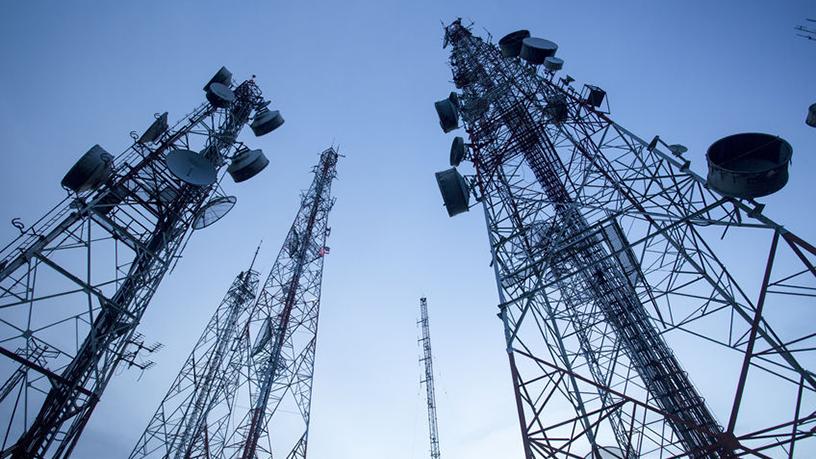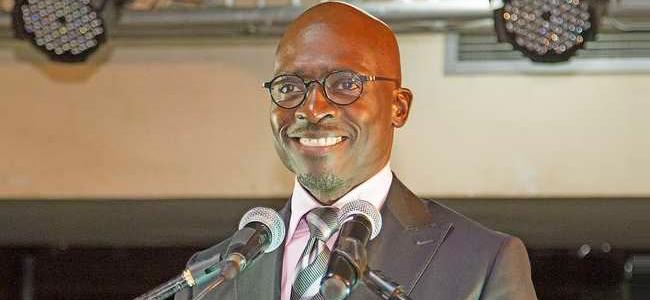
The delay in allocating telecommunications spectrum constrains growth across the economy. This is according to a National Treasury document released along with the Medium-Term Budget Policy Statement (MTBPS).
Finance minister Malusi Gigaba yesterday presented his inaugural MTBPS statement in Parliament.
Although an auction of high-demand spectrum wasn't directly mentioned during Gigaba's speech, a Treasury document proposes a different approach to the state's current policy on spectrum allocation.
According to the document, lack of radio frequency limits the ability of businesses to deploy new technologies and contributes to the high cost of broadband.
"A well-designed spectrum auction can promote transformation and improve competition as new participants enter the market. Universal service conditions can improve access for low-income households. And a competitive auction can sharply reduce data costs. The bulk of additional spectrum is ready to be allocated immediately, without requiring the migration of existing spectrum users to digital television."
In July, Gigaba outlined government interventions aimed at inclusive growth. The action plan included new timelines for the allocation of spectrum for telecoms services.
Government ideology
Government's National Integrated ICT Policy White Paper, which was facilitated by the Department of Telecommunications and Postal Services (DTPS), proposes a shake-up of the previous policy framework for spectrum allocation in favour of an "open access regime".
The White Paper was finalised and published in September 2016, and is supposed to replace the separate white papers on telecommunication (1996) and postal services (1998).
The DTPS has stated it is not planning to renegotiate its ICT White Paper, therefore a stance that appears to go against the department's ideals may present some challenges.
George Kalebaila, director for telecoms and Internet of things in Africa at IDC, hopes that a statement about a spectrum auction comes at the back of consultation with the DTPS.
According to Kalebaila, the careful wording of the statement seems to suggest there could be a major announcement regarding spectrum soon. The statement, he says, espouses the same aspirations as those in the ICT White Paper.

"The delay in allocation of spectrum is costing the industry and affecting much-needed growth, not only in ICT but also other sectors that are impacted by ICT. As IDC, our view has been consistent that spectrum will unlock necessary investment in 4G, increase competition and lead to competitive data prices; all these are good for the market and government.
"Hopefully, this will not result in a tug of war between departments, but rather lead to a quicker coalescing of positions between the relevant government departments to make this necessary resource available to those who have the means to exploit it to create value for their shareholders, consumers and government as well."
Africa Analysis MD Dobek Pater says talk of a spectrum auction could suggest government may be rethinking its stance on the wireless open access network (WOAN) aspect of the ICT policy.
An auction is beginning to gain weight versus government ideology, he says. "ICASA [Independent Communications Authority of SA] has already announced it plans to auction some of the low-frequency spectrum. Perhaps more spectrum, which is deemed to be in high demand by government, may be allocated for an auction process."
Small players
Sonwabo Mdwaba, secretary of the Black IT Forum in the Eastern Cape, told ITWeb he doesn't support the auction of spectrum, as it would further isolate smaller market players.
Mdwaba, who is also founder and CEO of Sive Telecoms, was adamant there must be no spectrum auction.
The minister must ensure small medium enterprises are able to enter the market and enjoy the ICT economy, he says. "The market is concentrated with a few players that can afford spectrum auctions amounting to billions of rands. Who is going to support and provide that kind of money to the smaller players."
Naila Govan-Vassen, Frost & Sullivan's senior industry analyst for Africa Digital Transformation Practice, says it is re-assuring that government sees connectivity as a critical means to encourage economic growth.
"Granted, spectrum release can lead to affordable broadband connectivity and hence higher penetration rates. It will also add to the competition by it being auctioned to new market entrants and thus the respective economic growth. However, SA needs to have a clear vision on how connectivity can reach the rural and less densely populated areas. The spectrum auction needs to be accompanied by a plan on how the last mile challenge can be alleviated; if the auction does go ahead, only medium and large private enterprises will be able to afford it.
"What are the chances that these enterprises will drive connectivity to reach the rural and less densely populated areas? Understandably so, their investments will focus on areas where they can obtain return on their investments.
"From my perspective, government has to play an important role in driving connectivity reach and most importantly in collaborating and working together with the private sector."
It's crucial the funds obtained from the auction of spectrum are used to finance and speed-up broadband connectivity in the country, states Govan-Vassen.
Economic boost
Pater points out government needs money to help plug a gaping and growing gap in its budget. A spectrum auction is one way of sourcing some of the requisite funds, he says.
"An auction of high-demand spectrum could yield several billion rand (or more) for the government, which would be very helpful.
"Therefore, the government may now be viewing a potential auction in this light - yes, it still supports a WOAN in principle, but the requirement for funding a budget gap is growing and an auction could be part of a solution to finding additional funds."
Kalebaila adds spectrum auctions have been used successfully in many countries as a fair way of distributing this scarce resource to market players.
"ICASA not so long ago also favoured the same process, though it seemed to be at odds with government position as espoused in the ICT White Paper and has since been abandoned, waiting for the ICT White Paper to be finalised."
Share